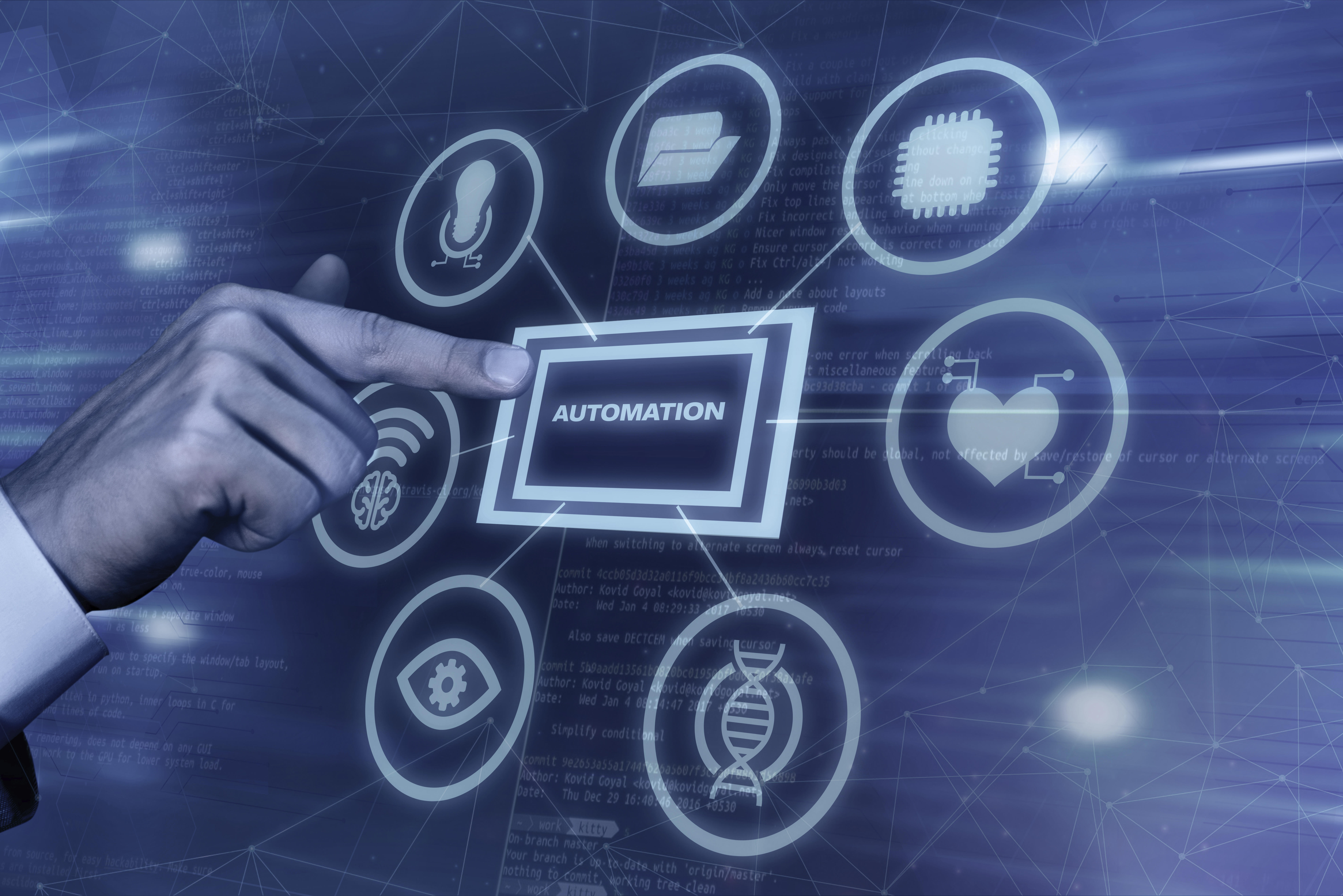Long-Term Career Planning: A Smart Guide to Success with AI Support
Why is Long-Term Career Planning Important?
Long-term goals in career planning are a crucial aspect of achieving sustained success and growth in one's professional life. By setting clear and thoughtful long-term goals, individuals can create a roadmap for their career, allowing them to stay focused and motivated throughout their journey. Without long-term goals, professionals may feel lost or uncertain, making it challenging to measure progress or make informed decisions. In today’s rapidly evolving job market, it’s even more vital to plan for the future to anticipate trends, adapt to industry changes, and continuously develop relevant skills. Moreover, AI tools are becoming increasingly useful in shaping career paths, as they provide personalized insights, predict future job market demands, and assist in refining career strategies. By leveraging AI in the planning process, individuals can make more informed choices and maximize their potential for success in the long run.
The Significance of Long-Term Career Goals
Setting long-term goals in career is essential for achieving career success. Without a clear vision for the future, professionals may find themselves drifting from one opportunity to the next without a sense of direction. Long-term career planning provides the framework needed to set meaningful objectives, allowing individuals to track their progress and make informed decisions along the way. By focusing on long-term goals, professionals can prioritize their efforts, build valuable skills, and pursue roles that align with their passions and expertise.
Staying Focused and Motivated
One of the key reasons why long-term career planning is crucial is that it helps maintain focus and motivation. Career paths can be filled with challenges, setbacks, and unexpected changes. However, having a well-defined set of long-term goals enables individuals to stay on track, even in the face of obstacles. With these goals in mind, professionals can break down large ambitions into smaller, more manageable steps, which increase the likelihood of sustained motivation over time.
How Do you Define Long-Term Goals in your Career?
Defining long-term goals in your career is a critical step in creating a successful and fulfilling professional journey. These goals provide you with a clear vision of where you want to go and what you aim to achieve in the future. Long-term goals are typically set for a period of 5 to 10 years or more, allowing you to focus on significant milestones such as reaching specific roles, mastering certain skills, or achieving certain levels of success in your field. To define these goals, it’s important to first reflect on your personal aspirations, values, and lifestyle. Consider what excites you in your career, the impact you want to make, and how your professional life can align with your personal life. By doing so, you not only ensure that your goals are meaningful and achievable but also create a roadmap that motivates and guides you toward long-term career success.
What are Long-Term Career Goals?
Long-term goal in career goals are the objectives you set for your professional life that span over several years, typically ranging from 5 to 10 years or more. These goals provide direction and purpose, guiding you toward achieving your desired career outcomes. They could include aspirations such as reaching a specific role, gaining expertise in a certain field, or attaining a particular level of education or skill set. Defining these goals early on helps to create a clear vision of where you want to be in the future, allowing you to make informed decisions along the way.
Identifying Personal Career Aspirations and Objectives
To define your long-term career goals, it's essential to start by identifying your personal career aspirations. Ask yourself questions like: What kind of work excites me? What values do I want my career to reflect? What impact do I want to have in my industry? Answering these questions can help you clarify your ambitions. It’s important to align your goals with your passions and strengths, ensuring that your career path is not only fulfilling but also sustainable in the long run.
Why is AI Support Key for Achieving Long-Term Career Goals?
AI support is crucial for achieving long-term career goals because it provides valuable insights and guidance that help individuals make informed decisions about their professional paths. With the help of AI tools, professionals can discover career opportunities they may not have considered, assess their current skills, and identify areas for growth. AI can also analyse job market trends and predict which industries or roles are likely to expand in the future, allowing individuals to align their long-term career goals with future demand. By using AI for career assessments, skills gap analysis, and trend forecasting, individuals are better equipped to make strategic decisions that enhance their career development and increase their chances of long-term success.
How Can AI Tools Help Identify Career Paths and Opportunities?
AI tools are becoming invaluable in helping individuals identify potential career paths and opportunities that align with their skills and interests. By analysing vast amounts of data, AI systems can suggest career options that may not have been initially considered. These tools can match an individual’s qualifications, experience, and preferences with industries or roles that have high demand, guiding them toward career opportunities with the best potential for growth. With AI’s predictive capabilities, individuals can make informed decisions about the direction of their careers, ensuring that their long-term career goals are aligned with evolving job market trends.
Using AI for Career Assessments and Skills Gap Analysis
AI-powered career assessment tools are effective in evaluating an individual’s strengths and weaknesses, providing a clear understanding of where they excel and where they may need further development. These tools can help users assess their current skill set and compare it to the skills required for their desired career trajectory. By identifying gaps in skills or knowledge, AI tools can suggest personalized training programs or courses that bridge these gaps, helping individuals work toward their long-term career goals. AI-based feedback enables professionals to continuously improve, making it easier to stay competitive in the job market.
How Do you Set Long-Term Goals in your Career?
Setting long-term goals in your career is a crucial process that helps you define your professional aspirations and chart a clear path to achieve them. The first step involves assessing your current career position to understand where you stand, followed by identifying areas that require growth or improvement. Once you have this understanding, you can set SMART goals—specific, measurable, achievable, relevant, and time-bound—that provide structure and focus for your career journey. Additionally, leveraging AI tools can significantly enhance your ability to track your progress and refine your goals based on real-time data. By following these steps, you ensure that your long-term goals are realistic, aligned with your career vision, and adaptable to changing circumstances, increasing your chances of sustained success.
Assessing your Current Career Position
The first step in setting long-term career goals is to assess your current career position. Take a close look at where you are in your career right now, including your current role, skills, accomplishments, and experiences. This reflection will help you understand your strengths and identify any areas that may require improvement. By evaluating your position, you can determine whether you’re on the right track toward achieving your long-term career goals or if adjustments need to be made.
Identifying Areas for Improvement and Development
Once you have a clear picture of your current career status, the next step is to identify areas for improvement and development. This might involve learning new skills, gaining additional experience, or obtaining qualifications that can help you advance in your field. Understanding what areas require growth allows you to take proactive steps toward achieving your long-term goals. Identifying your weaknesses and addressing them ensures that you remain competitive in your chosen field and continue to progress toward your desired career outcomes.
How Can you Use AI to Create a Career Roadmap?
Using AI to create a career roadmap is an effective way to plan and navigate your professional journey. AI tools help visualize long-term career goals by offering data-driven insights into the steps needed to reach them. These tools can assess your current skills and experiences, then suggest personalized learning paths that align with your aspirations. By recommending relevant courses, certifications, and growth opportunities, AI ensures your career development is targeted and efficient. Additionally, AI-driven analytics track your progress, providing real-time feedback and adjusting your roadmap as needed. This dynamic support helps you stay on track, refine your goals, and continuously progress toward your long-term career objectives.
How Can AI Career Planning Tools Help Visualize Long-Term Goals?
AI-powered career planning tools can help you visualize your long-term goals by providing clear, data-driven insights into your career trajectory. These tools analyse your current skill set, experience, and industry trends to create a personalized roadmap. By mapping out your career goals visually, these AI tools allow you to see both the immediate and future steps needed to reach your desired position. With the ability to assess market demand and potential career growth, AI makes it easier to identify key milestones and the skills required to reach them.
Personalized Learning Paths with AI Recommendations
One of the key features of AI in career planning is its ability to provide personalized learning paths. AI tools analyse your strengths, areas for improvement, and career aspirations to recommend tailored educational content, certifications, and courses that will help you progress. Whether it’s upskilling or gaining new qualifications, AI suggests the most relevant learning opportunities based on your career goals. This ensures that the learning journey is focused, targeted, and aligned with your long-term objectives, allowing you to stay on track and develop the right skills for the roles you aim to achieve.
What are the Common Challenges in Long-Term Career Planning and How Can you Overcome Them?
Long-term career planning often presents several challenges, including decision fatigue, uncertainty, and the need to adapt to changing industry trends. One of the main hurdles is decision fatigue, where the overwhelming number of choices can hinder clear decision-making. AI tools can assist by analysing your skills, preferences, and job market trends, offering data-driven recommendations that simplify the decision-making process. Another challenge is adjusting long-term goals in response to shifts in the industry. The job market is constantly evolving, and the skills in demand today might not be the same in the future. AI insights help you stay ahead by providing real-time data on emerging trends, allowing you to adapt your goals accordingly. By leveraging AI, you can overcome these challenges and stay on track with your long-term career goals, ensuring that you’re planning is both strategic and flexible.
How Can AI Help with Decision Fatigue and Uncertainty?
One of the biggest challenges in long-term career planning is decision fatigue. The process of setting and refining career goals can be overwhelming, especially when faced with multiple options or uncertain outcomes. AI tools help reduce this fatigue by offering data-driven insights and recommendations, making decision-making easier. For example, AI can analyse your skills, preferences, and career trends to suggest the most promising career paths, removing the guesswork and narrowing down choices. By providing clarity and a structured approach to goal-setting, AI alleviates the stress that often accompanies career planning, helping you stay focused on your long-term career goals.
Adjusting Goals in Response to Industry Changes with AI Insights
Another challenge in long-term career planning is the ever-changing job market. Industries evolve rapidly, and the skills in demand today may be different from those required in the future. AI helps you stay agile by offering real-time insights into industry trends and emerging job roles. These tools can track shifts in the job market, identifying new opportunities and areas of growth that align with your career aspirations. When industry changes occur, AI enables you to adjust your long-term goals accordingly, ensuring that you remain relevant and competitive in your field. By continuously updating your goals in response to AI insights, you can proactively adapt to changes and maximize your career potential in the long term.
What are the Key AI Tools for Career Planning and Development?
AI tools play a crucial role in career planning and development by providing personalized support and resources that help professionals achieve their long-term goals. AI-driven career coaching platforms offer tailored guidance, helping individuals assess their strengths and weaknesses, explore career paths, and receive feedback on their professional profiles. AI-powered resume builders optimize your job applications, ensuring that your resume stands out to employers by matching it with the skills and experiences they seek. Additionally, job search tools use AI algorithms to connect you with job opportunities that align with your career aspirations. Finally, online learning platforms with AI capabilities recommend courses and resources that allow you to upskill, ensuring your skills remain relevant to future job demands. By integrating these AI tools, you can navigate your career development more efficiently and strategically, making informed decisions that support your long-term goals.
Overview of AI-Driven Career Coaching Platforms
AI-driven career coaching platforms are transforming how professionals plan and develop their careers. These tools use AI algorithms to analyse your career history, skills, and goals, offering personalized guidance to help you achieve long-term career aspirations. By evaluating your strengths and weaknesses, these platforms provide tailored advice on how to advance in your current field or transition into a new one. AI career coaches also help with decision-making by suggesting potential career paths, offering interview tips, and providing feedback on your professional profile, helping you stay aligned with your long-term goals.
AI-Powered Resume Builders and Job Search Tools
AI-powered resume builders and job search tools are essential for optimizing your job application process. These tools analyse job descriptions and help you tailor your resume and cover letter to match specific employer needs. They highlight the most relevant skills and experiences, ensuring your application stands out. Additionally, AI-driven job search tools use algorithms to match your profile with suitable job opportunities, enhancing your chances of finding positions that align with your long-term career goals. These tools also track job market trends, offering insights into which roles are in demand and the skills employers seek.
Conclusion
In conclusion, long-term goals in career planning is essential for setting clear, achievable goals that guide your professional journey. By using AI tools, you can enhance your ability to make informed decisions, identify growth opportunities, and continuously refine your career strategy. AI acts as a lifelong partner, helping you stay aligned with your long-term goals in career, track your progress, and adjust your roadmap as needed. To implement AI-driven career planning, start by exploring available tools, assessing your skills, and setting clear, actionable objectives that support your career aspirations for sustained success.








